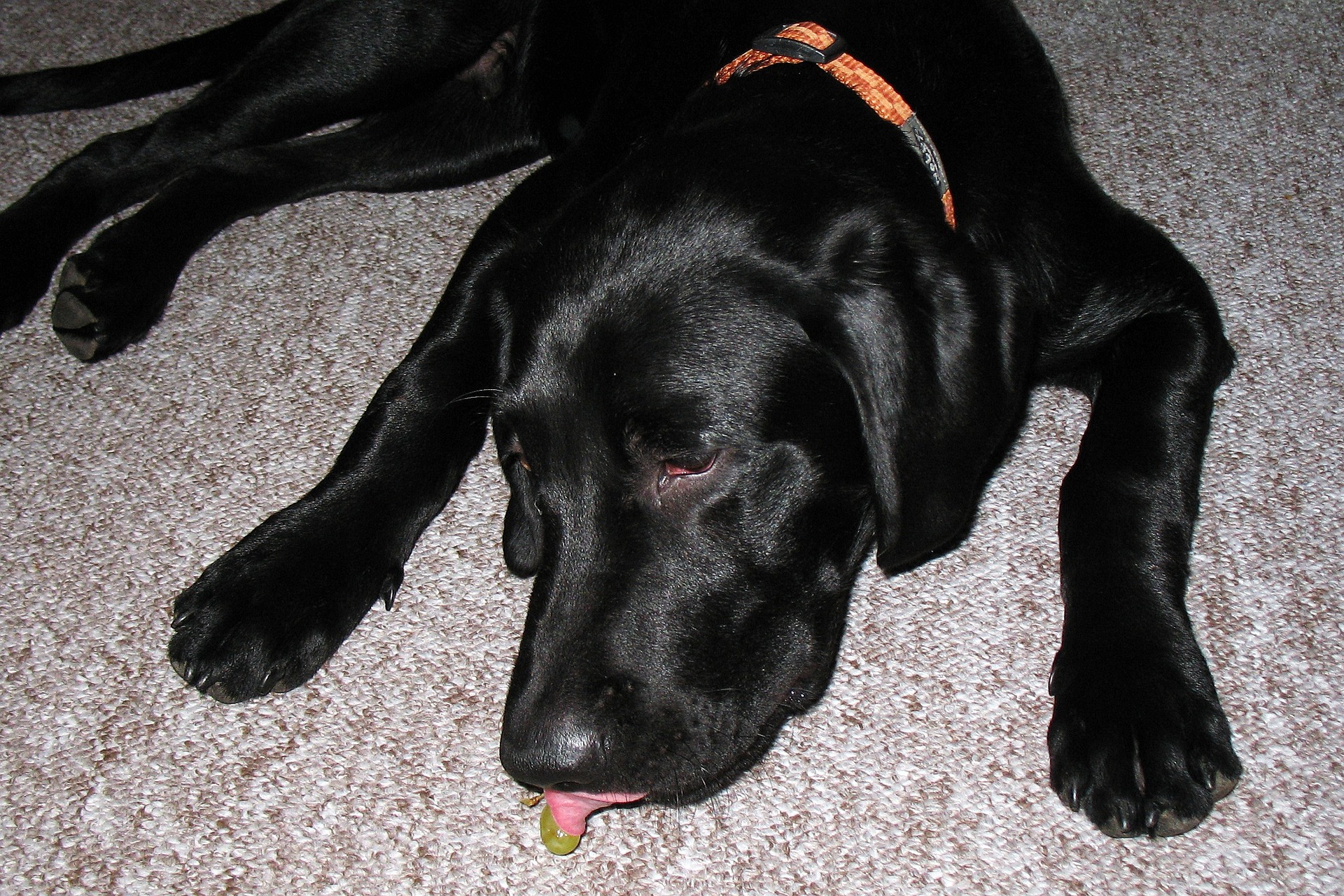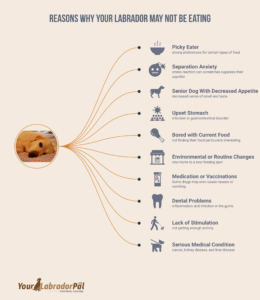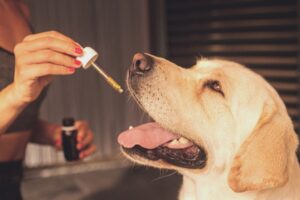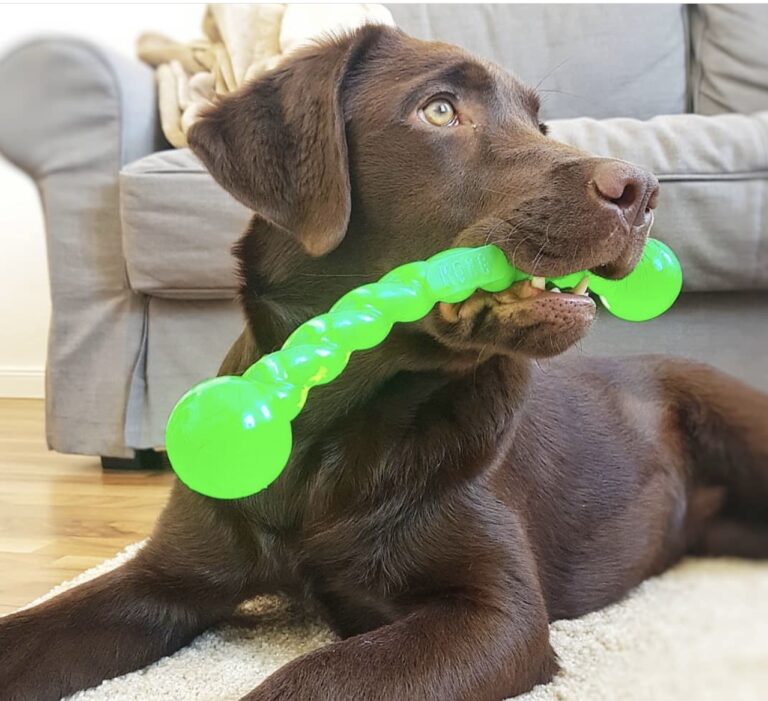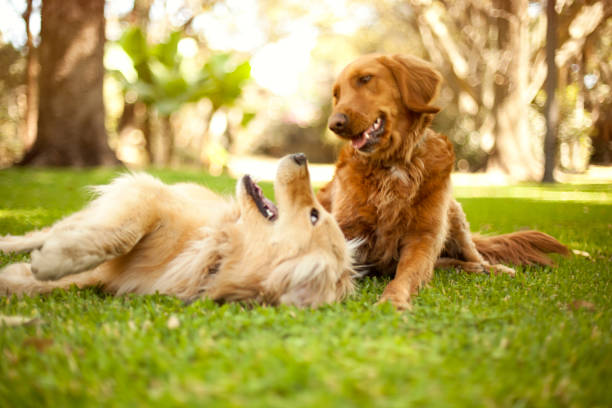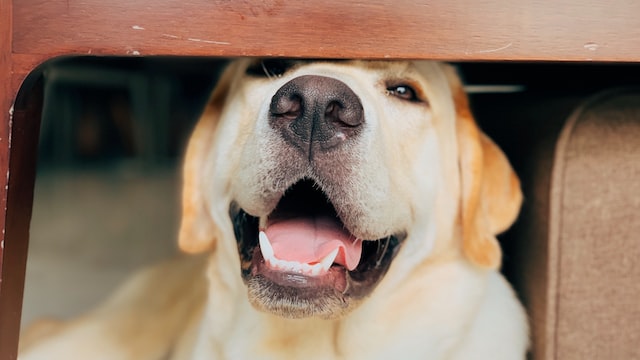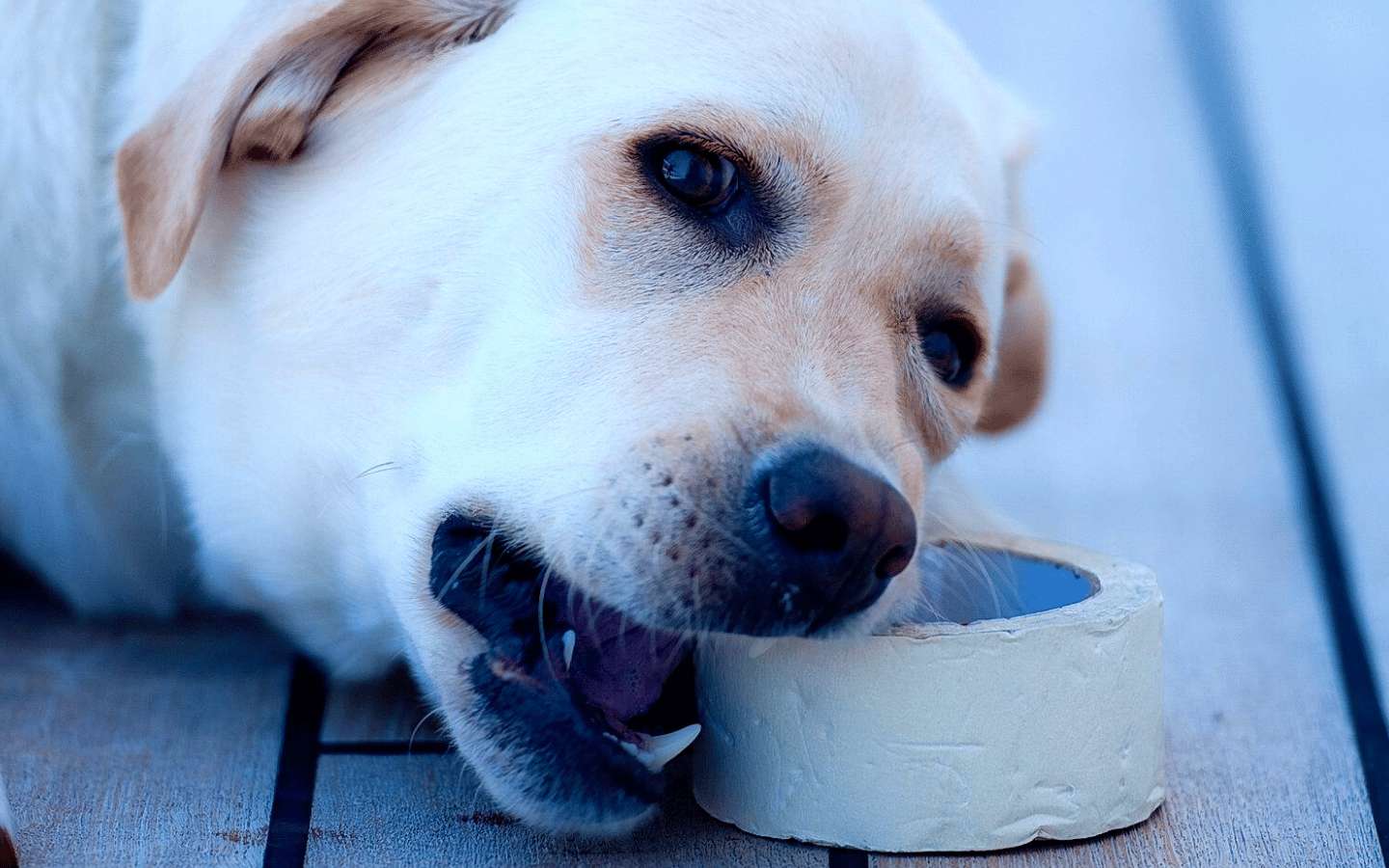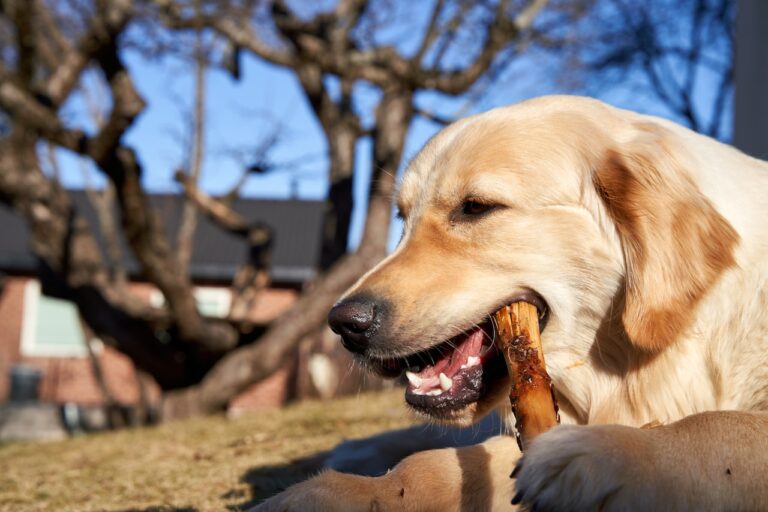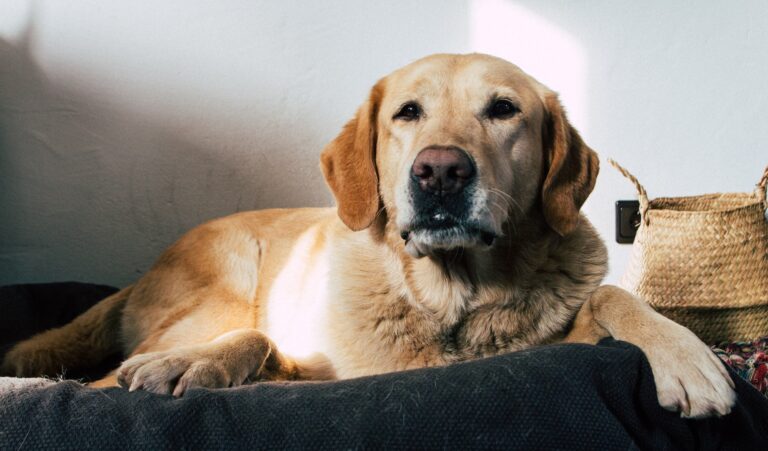Why Is My Labrador Not Eating?
Have you ever wondered: “Why is my Labrador not eating?” As a dog owner, it can be extremely concerning when our furry friends don’t have regular eating habits. We all know that a healthy and balanced diet is crucial for dogs to maintain their health and well-being, and when they stop eating, it can give us an indication that something is wrong. What are the reasons behind a Labrador not eating?
It’s important to remember that there are a variety of reasons why a Labrador might not be eating, and it’s not always a cause for alarm. However, it’s always best to err on the side of caution and investigate further to ensure your furry friend is happy and healthy.
In this article, we’ll explore the importance of regular eating habits for your furry friend and the concerns you need to be aware of if your Labrador isn’t eating.
Reasons Why Your Labrador May Not Be Eating
Dogs often go without food for a day or two. Nonetheless, Labrador Retrievers are typically food motivated, so this is unusual.
Even though Labradors are renowned for loving food more than other breeds, don’t be too hard on your dog; a recent study discovered that Labradors who are prone to obesity frequently have a gene mutation linked to hunger.
However, if your Labrador goes two days without eating, you should visit the vet; your Labrador probably won’t stop eating for no reason at all for so long. If your Labrador isn’t eating, it’s your responsibility as a pet owner to figure out why.
Here are a few potential causes for your Labrador’s lack of appetite:
🐕 Picky Eater
One of the main reasons why your Labrador may not be eating is simple: they’re a picky eater. Labradors are known to have big appetites, but they can also be very particular with what they eat. They might refuse to eat their food if it’s something new or if they’re bored with their usual diet.
Sometimes it’s just a matter of being offered too much variety or too many treats outside of meal times. Some dogs may refuse to eat when they’re feeling stressed or when their routine has been disrupted. Other dogs may have strong preferences for certain types of food or may have developed a taste for table scraps instead of their regular dog food.
It’s essential to keep in mind that picky eating behavior is not limited to Labradors only. Dogs, in general, may become picky with their food from time to time. However, if your dog’s picky eating continues, it’s crucial to identify the underlying causes to determine the best course of action. But for now, don’t panic if your Labrador won’t finish its dinners – it could just be a case of a fussy pup!
🐕 Separation Anxiety
It’s dinner time, and yet again, your beloved Labrador Retriever is just standing in front of the bowl of food, not even looking at it. You place your hand in front of their nose, hoping to encourage them to eat, but they just look at you with sad eyes. You may start to think that they are just picky eaters or trying to get attention. However, one of the most common reasons why a Labrador may stop eating is separation anxiety.
The bond between a Labrador and its owner is unbreakable. Whenever they are alone, they feel separation anxiety. It’s a common condition, and it can cause a lot of distress in dogs. When you are not around, your Lab may feel anxious, and the last thing on its mind is eating. They may feel like they need to be on high alert to protect themselves or their owners, and that mindset can prevent them from feeling comfortable enough to eat.
Additionally, when a Labrador is suffering from separation anxiety, it causes a surge of stress hormones. The stress reaction can sometimes suppress their appetite. Instead of feeling hungry, they feel nauseous, making eating challenging.
🐕 Senior Dog With Decreased Appetite
As dogs get older, their body goes through numerous changes, and this can impact their appetite.
Senior dogs tend to have a decreased sense of smell and taste, which can lead to a disinterest in food. Also, their metabolism slows down, meaning they require less food to meet their daily needs. The loss of muscle mass also contributes to a decrease in energy and, thus, a decrease in food intake.
Therefore, if you own an older dog, you should regularly monitor their eating habits and ensure they have a healthy meal plan that aligns with their current dietary requirements. Proper nutrition is vital for maintaining the health and well-being of older dogs, and it’s essential to provide them with the necessary sustenance they require to lead a comfortable and happy life.
🐕 Upset Stomach
Dogs can be vulnerable to stomach upsets from time to time and become so unwell that they may refuse to eat. Upset stomachs can result from a number of factors: it could be due to eating foods that don’t agree with them, feeling anxious or stressed, or even from an infection or gastrointestinal disorder.
If this is the case, your beloved pet will give off signs of discomfort that you should pay attention to. They may vomit, have diarrhea, show decreased energy levels, and appear restless or listless. Ultimately, if you feel that something is off with your pet, it’s always best to take them to see a veterinarian as soon as possible.
In the meantime, observe your pet closely and try to comfort them in whatever way you can. After all, they’re part of the family!
🐕 Bored with Current Food
You see, labs are notorious for their keen sense of smell. They have an incredible 300 million scent receptors – compared to our measly 6 million! This powerful sniffer means they’re incredibly sensitive to different scents and flavors, and if they’re not finding their food particularly interesting, they might simply choose not to eat it.
In the wild, dogs are scavengers and need to be able to differentiate between different food sources to find what’s safe to eat. Even though our domesticated labs are no longer living in the wild, they still retain their sense of smell and their instinct to seek out new sources of food.
🐕 Environmental or Routine Changes
Dogs thrive on routine and can become anxious or stressed when their environment changes.
Environmental changes can range from a new home to a new feeding spot. Moving to a new house can be a major adjustment for your Lab. Everything from the sights, sounds, and smells can be different, and this can cause anxiety or stress in your pet.
Similarly, changing the place where you usually feed your dog can be confusing to them. They are creatures of habit and may only associate eating with a specific spot in your home. Any change to that routine may throw them off.
Lastly, your routine can also have an impact on your dog’s appetite. Changes in your work schedule, for instance, may mean that you are feeding your Labrador at a different time of the day or for shorter periods. This can leave your furry friend disinterested in food, especially if they are used to a routine.
🐕 Medication or Vaccinations
While vaccines are crucial to keeping your dog healthy, they may also have some side effects, including loss of appetite. If your dog has recently been vaccinated, it may need some time to recover before its appetite returns.
Moreover, dogs may also be prescribed medication for various reasons, and some medications may have a negative impact on their appetite. Some drugs may even cause nausea or vomiting, making it hard for your dog to keep their food down. It’s important to keep track of when your dog started medication and whether their loss of appetite coincided with that time.
It’s important to note that loss of appetite due to medication or vaccinations can be temporary, with your dog’s appetite returning once the course of medication is over or the side effects have worn off.
🐕 Dental Problems
Think about it – if you had a toothache, would you really feel like eating? The same goes for dogs. Dogs can develop dental issues like gum disease, tooth decay, and infections. Periodontal disease, for example, is a common dental issue in dogs that can lead to inflammation and infection in the gums and mouth. This can make chewing and eating uncomfortable. As a result, they might start refusing to eat altogether.
It’s important to note that dental problems aren’t always immediately obvious. We can’t just ask our dogs if their teeth hurt, unfortunately! So it’s up to us as owners to look out for the warning signs. If your Labrador suddenly starts turning their nose up at their meals or seems to be chewing their food in a strange way, it’s time to investigate further.
🐕 Lack of Stimulation
Labradors are active dogs that need plenty of exercise and playtime to stay healthy and happy. They’re intelligent creatures that crave mental stimulation and interaction with their humans.
They can become bored and disinterested in their food if they’re not getting enough activity. This lack of stimulation can also lead to other behavior issues like destructiveness, restlessness, and anxiety.
So, if you notice that your Lab isn’t eating, it might be time to evaluate their activity level. Are they getting enough exercise and playtime? Do they have plenty of toys and puzzles to keep them mentally engaged? It’s important to provide your furry friend with plenty of opportunities to use their energy and stimulate their minds.
🐕 Serious Medical Condition
If your Labrador’s lack of appetite and drowsiness isn’t due to an upset stomach or behavioral concerns, it’s possible that he has a serious medical condition.
The most serious conditions that can lead to a loss of appetite are cancer, kidney disease, and liver disease. While it’s important not to jump to conclusions, keeping a close eye on any changes in your Labrador’s behavior or appetite is always wise. Other warning signs that they could be suffering from a serious medical condition include lethargy, vomiting, and diarrhea. If you notice any of these symptoms, it’s essential to seek veterinary advice as soon as possible.
It’s a sad truth that as pets grow older, they become more vulnerable to illnesses, and this is true for labradors too. In particular, labradors are known for being prone to obesity, which can lead to a range of medical conditions, such as diabetes and heart disease.
The best course of action is to get advice from a vet and follow it. You should closely monitor your dog’s behavior for the next 24 hours after detecting anything unusual. This will buy you some time to figure out what to do next.
Steps You Can Take To Address The Issue
Ensuring your pets are happy and healthy is one of your most important responsibilities as a pet parent. When your dogs refuse to eat, it can be extremely concerning and frustrating. The good news is there are several steps you can take to address this issue, and I’m here to help you out!
So, let’s dig in and explore some ways to help your dog regain their appetite.
🥣 Change Their Food
One of the best steps you can take to address the issue is to change their food. Yes, I know it sounds simple, but it really does work!
You have a few different options for changing up your dog’s food. One option is to switch from dry to wet dog food. Wet dog food has a higher water content, which can help keep your dog hydrated, and the different textures can make mealtime more exciting for them.
Another option is to mix in some human food with their dry food. Just make sure that you avoid giving them anything that could be toxic to dogs, such as chocolate or onions.
Canned food is also a good option. It’s similar to wet food, but it usually comes in smaller portions, which can be helpful if your dog has a smaller appetite. Plus, there are tons of different flavors and brands to choose from, so you’re sure to find something that your dog will love.
Changing up your dog’s food is a simple solution that can make a big difference in their appetite. So why not give it a try?
🍜 Add a Tasty Topper or Mix to Their Food
Adding a topper or mix to your Lab’s new food is an excellent way to entice them to eat. Think of it like adding your favorite sauce to your favorite meal. It just makes everything taste so much better!
There are so many delicious options out there, from gravy mixes to freeze-dried meat toppers. Not only will it make mealtime more enjoyable for your pup, but it can also add some nutrients to their diet and help them stay healthy.
But don’t just take my word for it! Talk to your vet about what toppers or mixes they recommend for your specific pup. And always make sure to read the ingredients list to ensure that what you’re adding is safe and healthy. With this simple solution, mealtime will become something your Lab looks forward to every day.
🥣 Warm-up The Food
Yes, you heard me right- warming up their food can work like magic. Dogs also enjoy a warm and comforting meal. Cold food can be uninviting, particularly if the weather is cold. Warming up your furry friend’s food makes it more appetizing and enhances the flavor and aroma. It’s like having a freshly cooked meal straight from the kitchen stove. And who can resist that?
If you’re wondering how to warm up your Labrador’s food, it’s fairly simple. You only need to microwave their food for a few seconds or warm it up in a pan. Make sure the food is not too hot, as it could be dangerous for your dog’s mouth.
Once it’s ready, serve it up to your pooch and watch them chow down happily. Trust me; there’s simply no better feeling than seeing your furry friend devour their food with glee.
🦮 Go For a Walk Before Meals
Going for a walk before meals could be the key to getting your pup to chow down on his food like there’s no tomorrow. Now, I know what you’re thinking – how does that even make sense? But trust me, it works.
Going for a walk before meals helps to stimulate your Labrador’s appetite by increasing its metabolic rate and aiding digestion. This not only helps them to eat more but also ensures that they are more likely to digest their food properly.
So, the next time your Labrador seems disinterested in his food, grab that leash and take him out for a quick stroll. It could be just the thing he needs to get excited about his meal again. And who knows, it could also be a great way to bond with your furry friend, get some exercise, and enjoy some fresh air together.
So, go ahead, give it a try, and see the results for yourself – your Labrador might just thank you for it!
🍲 Feed at Consistent Times
We know that dogs are creatures of habit, and as much as we might love to give them treats or extra meals, it’s best to stick to a regular schedule. By feeding your Labrador at the same time every day, its body will get used to the routine and start to feel hungry at the designated mealtime.
Consistent feeding times will also help you monitor your dog’s eating habits and recognize any unusual changes. If your Labrador is still not eating even at the regular feeding times, you can quickly address the issue before it worsens.
💊 Consider Adding Supplements or Probiotics
Supplements and probiotics are great ways to boost your dog’s nutrition and overall health. Supplements are specifically designed to provide additional nutrients or minerals that might be lacking in your dog’s diet, while probiotics contain live bacteria that aid in digestion and can help balance your dog’s gut flora.
Incorporating these into your dog’s meals can help encourage him to eat and improve his overall well-being.
If you decide to go the supplement or probiotic route, make sure to talk to your vet first. They can recommend the best products for your dog based on his specific needs and dietary restrictions.
And as always, pay attention to your dog’s behavior and appetite. If you notice any negative changes, it’s important to reassess and make any necessary adjustments.
🏚 Assess The Environment and Make any Necessary Changes
Firstly, take a look at your dog’s feeding area. Is it in a quiet and peaceful spot, away from any loud noises or distractions? If not, you may want to relocate it to a more serene area of your home.
Next, check the type of food bowl you’re using. Some dogs prefer ceramic or glass bowls, while others prefer metal or plastic.
Experiment with different materials to see what your dog prefers. Additionally, make sure the bowl is clean and free from any residues of the old food. By making some small changes, you may be able to reignite your pup’s appetite.
🧍 Consult With a Veterinarian For a Check-Up
If all else fails, it’s time to make an appointment with your vet. They can examine your dog and determine if there is any underlying cause. They may recommend some tests or procedures to better understand why your pup isn’t eating. This could include bloodwork or other diagnostic tests to rule out any potential illnesses or issues.
Once the vet understands what’s going on, they can recommend appropriate treatments or dietary changes to help your Labrador get back on track. So, feel free to make an appointment with your vet if you notice that your pup needs to eat more. It could be a sign that something is wrong, and getting ahead of it early can make all the difference.
Frequently Asked Questions
Q: How can reduced appetite and anorexia affect a Labrador’s overall health and well-being?
Reduced appetite and anorexia can seriously affect a Lab’s overall health and well-being. Not only can it lead to weight loss and malnourishment, but it can also affect their energy levels, immune system, and even their mental health. As a Lab parent, it’s important to keep an eye on your furry friend’s eating habits and ensure they are receiving a balanced diet. But don’t worry; there are plenty of ways to encourage your picky puppy to eat, from changing their food to incorporating tasty treats into their meals.
Q: How important is pet insurance that covers emergency care for your furry friend?
Just like car insurance, you hope you never have to use it, but it’s there when you need it most. Emergencies can happen at any time, and the last thing you want to worry about when your fur baby is in pain is the cost of their care. Having pet insurance that covers emergency care can help ease that burden, giving you the peace of mind to focus on your pet’s health and well-being. Because let’s be honest, they already give us unconditional love and endless cuddles – the least we can do is protect them when they need us most.
Q: What does fussy eater mean, and how can I tell if my Labrador is one?
It’s a term often used to describe dogs who are picky with their food choices. If you’re a Labrador owner, you may be wondering if your furry friend falls into this category! Some signs of a fussy eater in your Labrador include refusing to eat certain flavors or types of food, being hesitant to eat even when hungry, or walking away from their food bowl without finishing their meal. Don’t worry too much, though – some dogs are just more finicky than others!
Q: Can intestinal parasites or digestive issues be the cause of my Labrador’s reduced appetite?
Yep, those pesky little buggers can cause a whole host of issues for our beloved dogs. And let’s be honest; nobody wants a parasite party going on in their pup’s intestines. So, it’s essential to watch for symptoms like vomiting, diarrhea, and weight loss. If you notice any of these signs or your dog’s appetite has decreased, it’s time to take a trip to the vet.
Q: What are the essential elements of a balanced diet for a Labrador?
Your Labrador needs a good mix of protein, carbohydrates, healthy fats, vitamins, and minerals. This means things like lean meats, whole grains, healthy fats (like fish oil), and lots of fruits and veggies. And, of course, make sure they always have plenty of fresh water. It’s also important to listen to your vet’s advice and monitor your dog’s weight, as every pooch is unique and has its own dietary needs. But with some effort and attention, you can ensure your Labrador is eating like a champ and wagging their tail in thanks.
Final Words
Well, it’s been quite a ride trying to figure out why your Labrador isn’t eating! After considering all the possible reasons, it’s important to remember that sometimes dogs just have a slight slump in their appetite. Just like us, they can have days where they’re not super interested in food, and that’s okay.
However, suppose your Labrador continues to not eat for an extended period or starts experiencing other symptoms. In that case, it’s always best to consult with a veterinarian as soon as possible. Remember to monitor their overall behavior, energy levels, and bowel movements to get a better sense of what’s happening. Overall, I hope this experience has shown you how important it is to pay attention to your furry friend’s eating habits and take action if necessary.

